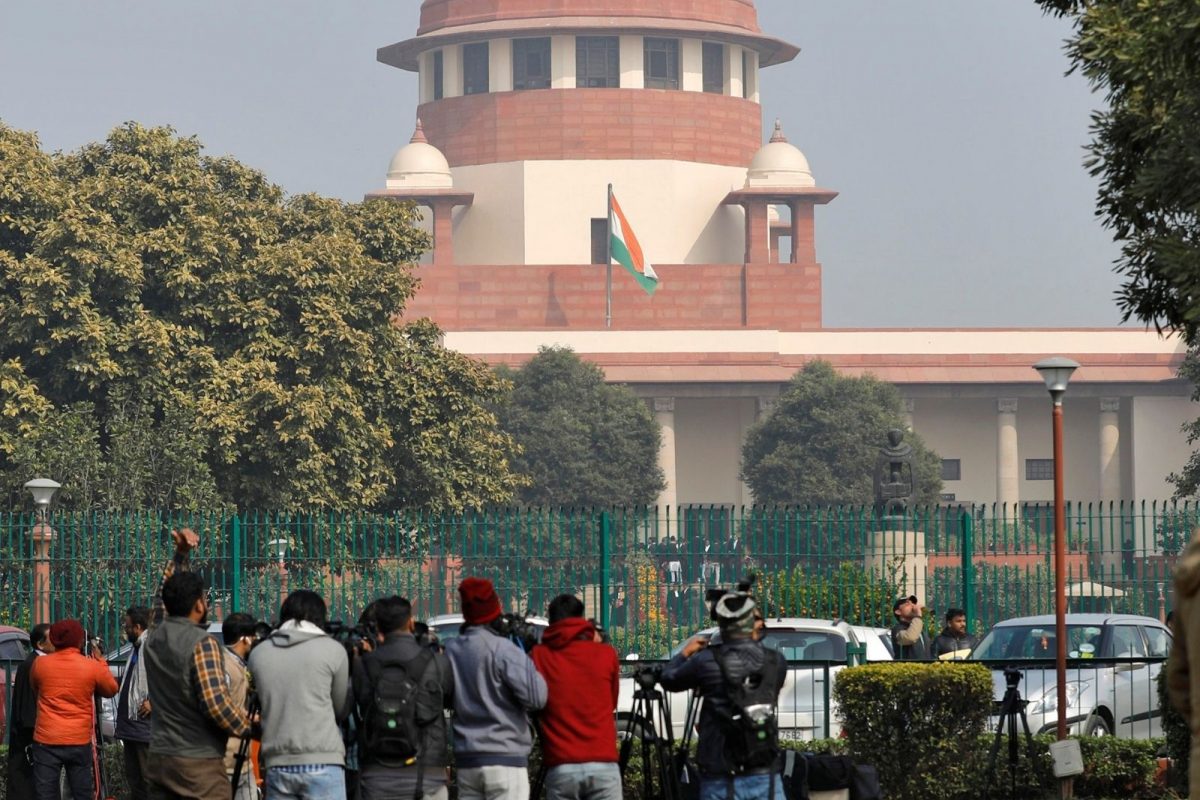


On Thursday, the Supreme Court in the case X vs Principal Secretary, Health and Family Welfare Department, Govt of NCT Of Delhi observed and has declared that unmarried women are also being entitled for seeking abortion of pregnancy in the term of 20-24 weeks arising out of a consensual relationship.
It was ruled by the Court that exclusion of unmarried women who conceive out of live-in relationship from the Medical Termination of Pregnancy Rules is unconstitutional.
The court stated while noting that the 2021 amendment to the Medical Termination of Pregnancy Act does not make a distinction between married and unmarried women, all women are entitled to safe and legal abortion.
In the present case, the issue relates to whether the exclusion of unmarried woman, whose pregnancy arises out of consensual relationship, from Rule 3B of the Medical Termination of Pregnancy Rules is valid. It was mentioned in Rule 3B the categories of woman whose pregnancy in the duration of 20-24 weeks can be terminated.
However, the distinction between married and unmarried women is unsustainable.
The bench comprising of Justice Chandrachud read out the excerpts of the judgment that if Rule 3B(c) is understood as only for married women, it would perpetuate the stereotype that only married women indulge in sexual activities. Thus, this is not constitutionally sustainable. It cannot sustain the artificial distinction between married and unmarried women. However, the women must have autonomy to have free exercise of these rights.
The Court added that the rights of reproductive autonomy give an unmarried women similar rights as a married women and the object of section 3(2)(b) of the MTP Act is in allowing woman to undergo abortion after 20 to 24 weeks. Including only married and excluding unmarried woman will be violative of Article 14 of the Constitution of India.
The Reproductive right part of individual autonomy
However, the foetus relies on the woman’s body to sustain and the decision to terminate is firmly rooted in their right of bodily autonomy. It will amount to an affront to her dignity, if the State forces a woman to carry an unwanted pregnancy to the full term.
The bench comprising of Justice D.Y. Chandrachud, Justice A.S. Bopanna and Justice J.B. Pardiwala in the case on August 23 had reserved judgment.
It stated that the law must be interpreted keeping in mind changing social mores
It was largely concerning the married woman, when the MTP Act was enacted in 1971 but as societal norms and mores change the law must also adopt. While changing the social mores must be borne in mind while interpreting provisions. It is indicated in social realities that the need to recognise legally non-traditional family structures.
The Judgment delivered on International Safe Abortion day.
A lawyer informed the bench that today happens to be the international safe abortion day, after the judgement was pronounced.
It was remarked by Justice Chandrachud, “We had no idea that this would coincide with safe abortion day. Thank you for informing us”.
Which are the categories of women to be included in Rule 3B?
(a) the survivors of sexual assault or incest or rape;
(b) the minors;
(c) the change of marital status during the ongoing pregnancy (divorce and widowhood);
(d) The women with physical disabilities [major disability as per criteria laid down under the Rights of Persons with Disabilities Act, 2016 (49 of 2016)];
(e) The mentally ill women including mental retardation;
(f) the foetal malformation that has substantial risk of being incompatible with life or if the child is born it may suffer from such mental or physical abnormalities to be seriously handicapped; and
(g) The women with pregnancy in humanitarian settings or emergency or disaster situations as may be declared by the Government.
Accordingly, these categories were added in the MTP Rules by the Central Government following the 2021 amendment to the MTP Act, which raised the ceiling limit for termination of pregnancy.